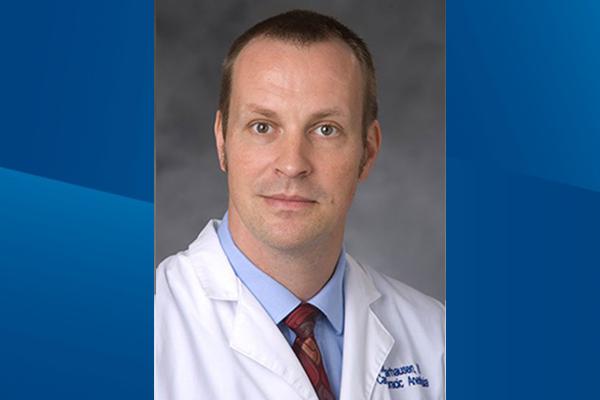
The National Institutes of Health’s National Institute of General Medical Sciences has awarded Duke Anesthesiology’s Jorn Karhausen, MD, a four-year, $1,719,290 R01 grant for his project, “Platelet-Mast Cell Interactions as Determinants of the Vascular Pathology in Septic Shock.”
Development of shock in sepsis defines a dramatic deterioration of clinical status and is linked to a significant increase in morbidity and mortality rates. However, the cellular and molecular mechanisms determining the vascular pathology of septic shock remain undefined.
Karhausen’s previous work established mast cells (MC) as key effector cells of vascular pathology in different disease contexts. Because MC products are found in the plasma in shock, but not during sepsis alone, this supports that MC activation is a central event leading to septic shock.
Based on extensive preliminary work, they hypothesize that specific signaling interactions between platelets from within the blood stream and MCs, which are located close by, but outside of the blood vessels, drive the vascular pathology of septic shock. The objectives of this study are to 1) comprehensively define the mechanisms of MC-mediated vascular pathology in sepsis, 2) elucidate the specific mechanism by which platelets trigger MC responses and resultant vascular pathology and 3) better define the clinical sepsis phenotype using biomarkers of platelet-, vascular- and MC- activation in patients.
To provide first evidence how MCs shape key features of shock in sepsis, Karhausen and his co-investigators will employ state-of-the- art technologies ranging from dynamic photoacoustic imaging of the microvasculature to gene expression modeling from clinical samples. This comprehensive approach will be made possible through a strong collaborative team, including groups from the School of Engineering, the Center for Applied Genomics and Precision Medicine and the Department of Pathology at Duke, as well as the Department of Cell Biology and Physiology at UNC.
“Together, this project constitutes a key step towards our long-term goal to establish MC responses as a biomarker of sepsis biology,” says Karhausen, associate professor of anesthesiology, “and to develop novel therapeutic strategies that may directly target the mechanisms of disease progression in sepsis.”